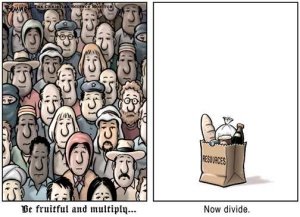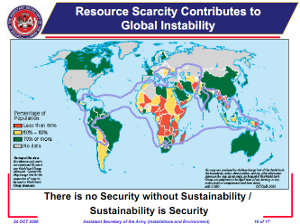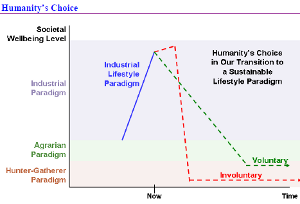Class of ‘09: You’re Screwed
Bill Bonner | Daily Reckoning
Bill Bonner | Daily Reckoning
 05/29/09 London, England Last weekend, we journeyed to Boston to attend a college graduation. Thousands of callow scholars were on display. Each was handed his papers…and then marched out of the hockey stadium. To the tune of ‘Pomp & Circumstance,’ wearing a long, red robe, he entered the outside world solemnly…like a patsy joining a poker game.
05/29/09 London, England Last weekend, we journeyed to Boston to attend a college graduation. Thousands of callow scholars were on display. Each was handed his papers…and then marched out of the hockey stadium. To the tune of ‘Pomp & Circumstance,’ wearing a long, red robe, he entered the outside world solemnly…like a patsy joining a poker game.So far, not a single major university has asked us to make the commencement address. Nor a minor college. Not even a school of cosmetology or taxidermy. But here at the Daily Reckoning headquarters in London, protected by a broad ocean and a narrow reading of the First Amendment, we will give them – and UK graduates too – advice no one asked for.
“Plastics,” was the advice given to college graduates in Mike Nichols’ ’67 film. But that was when there was still hope for America’s manufacturing sector. Even then, it was too late. The percentage of GDP from the manufacturing sector fell for the next four decades, from over 20% in the last ’60s to barely 12% last year. Better advice would have been ‘derivatives.’ They stank just as bad, but they were much more profitable. While only 8% of GDP, finance accounted for 40% of corporate profits in 2007. And derivatives grew from nothing to a face value of 16 times the GDP of the entire planet.
But your elders are always giving you bum advice.
“You cannot decline the burdens of empire and still expect to share its honors,” said Pericles to the class of 430BC. He lived during a time not unlike your parents’ era in the USA – when Athens was on top of the world. But vanity got the better of him. He launched an attack on Sparta that backfired badly. He soon died of plague and Athens was not only ruined, but enslaved. Athens’ ‘golden age’ turned to lead. Young Athenians should have shrugged off the burden rather than accept it. You should do the same.
 When you were born 20-some years ago, the nation’s total debt per person was less than $90,000 – adjusted to ’09 dollars, of course. While that was a lot of money, it was nothing compared to what was coming. Now it’s $186,717 per person – more than twice as much, in real terms. Fortunately, private debt is not inheritable. But it comes to you as a lien against property. Instead of paying off their mortgages and leaving you a house, free and clear, the baby boomer generation spent the ‘equity’ in their houses even faster than they got it. House prices rose. But mortgage debt rose faster. While your grandparents owned 80% of their houses, by 2007, the typical homeowner only really owned 4 rooms of an 8-room house. And then, when house prices fell, so did his remaining equity…to the point where one out of six homeowners in America is now underwater. You could still eventually inherit a house, but you may have to scrape the barnacles off the front porch.
When you were born 20-some years ago, the nation’s total debt per person was less than $90,000 – adjusted to ’09 dollars, of course. While that was a lot of money, it was nothing compared to what was coming. Now it’s $186,717 per person – more than twice as much, in real terms. Fortunately, private debt is not inheritable. But it comes to you as a lien against property. Instead of paying off their mortgages and leaving you a house, free and clear, the baby boomer generation spent the ‘equity’ in their houses even faster than they got it. House prices rose. But mortgage debt rose faster. While your grandparents owned 80% of their houses, by 2007, the typical homeowner only really owned 4 rooms of an 8-room house. And then, when house prices fell, so did his remaining equity…to the point where one out of six homeowners in America is now underwater. You could still eventually inherit a house, but you may have to scrape the barnacles off the front porch.But that’s not even the half of it. While your parents had control of the US government they allowed themselves a little larceny. Add the unfunded retirement and healthcare benefits they voted for themselves to the official national debt, and together they are scheduled to cost your generation 4 times the total annual output of the US. This is over and above the private debt they accumulated.
Some of this debt can be carried. Some will have to paid down. But as it stands, as much as $77 trillion of post-’09 earnings must be stolen from the future in order to pay for the liquor your parents drank…the bombs they dropped on god-forsaken foreigners…and the interest on their debts. So, forget about saving for a European vacation or a house of your own. Even if every penny of your savings – and every other American’s savings – are put to the task you will still be paying for your parents’ expenses all your life.
But wait, there’s more! The burden is getting heavier. Federal budget projections show an additional $7 trillion in deficits over the next 10 years. Described as the cost of fighting recession, the present generation buries its own mistakes under cash that the next generation hasn’t even earned yet. Today’s bankers, businessmen and speculators are being bankrolled by you – tomorrow’s bankers, businessmen and speculators. Today’s homeowners get a helping hand…from whom? Tomorrow’s homeowners – you. Today’s employees get a boost too. Same story. Where do you think the money came from to pay Wall Street bonuses this year? How do you think GM stays in business…and Fannie Mae…and AIG… Who pays those salaries? Who pays to keep troops all over the world and keep old people supplied with new drugs? Who pays for hundreds of billions’ worth of ‘shovel ready’ boondoggles? You will. At least, that’s the plan.
 The luck of one generation is the curse of the next. Like Pericles, your parents inherited a dollar; they leave you a peso. They took over the strongest, richest, most competitive nation in the world. And like Pericles they minded everyone’s business but their own. Now, not only does the US owe money all over town, its government puts out trillions more in IOUs every year – each one with your name on it. You’re not even out in the real world yet, and you’re getting the bill for 50 cents of every dollar the feds spend – almost none of it earmarked for you. But that is the thing about the real world your teachers probably forgot to tell you about. It is more unreal and fantastical than anything you studied.
The luck of one generation is the curse of the next. Like Pericles, your parents inherited a dollar; they leave you a peso. They took over the strongest, richest, most competitive nation in the world. And like Pericles they minded everyone’s business but their own. Now, not only does the US owe money all over town, its government puts out trillions more in IOUs every year – each one with your name on it. You’re not even out in the real world yet, and you’re getting the bill for 50 cents of every dollar the feds spend – almost none of it earmarked for you. But that is the thing about the real world your teachers probably forgot to tell you about. It is more unreal and fantastical than anything you studied.Here’s what’s real: You’ve been dealt a bad hand. From the bottom of the deck…your parents have slipped you some nasty cards. Our advice? Fold ’em. Get up from the table before they clean you out.
Along with Addison Wiggin, his friend and colleague, Bill has written two New York Times best-selling books, Financial Reckoning Day and Empire of Debt. Both works have been critically acclaimed and internationally. With political journalist Lila Rajiva, he wrote his third New York Times best-selling book, Mobs, Messiahs and Markets, which offers concrete advice on how to avoid the public spectacle of modern finance. Since 1999, Bill has been a daily contributor and the driving force behind The Daily Reckoning.
Source: Daily Reckoning
______________________________________________________________
Got Work?: College Graduates Face Toughest Job Market in Years
Jon Berman | ABC News
Jon Berman | ABC News
HARTFORD, Conn., May 20, 2009
 Casey Savage graduated from Trinity College in Hartford with a 3.8 grade-point average and honors. What he doesn't have is a job.
Casey Savage graduated from Trinity College in Hartford with a 3.8 grade-point average and honors. What he doesn't have is a job."I've talked to 24 different firms so far. Hedge funds, investment banks, private equity shops," Savage said. "And I just feel that there's limited opportunities at this point."
It's a familiar refrain being echoed at colleges and universities across the country, as the economy continues to slump and layoffs, furloughs and pay cuts dominate the employment landscape. The struggling economy means college seniors are facing one of the toughest job markets in years.
According to a survey from National Association of Colleges and Employers, the class of 2009 is leaving campus with fewer jobs in hand than their 2008 counterparts. The group's 2009 Student Survey found that just 19.7 percent of 2009 graduates who applied for a job actually have one.
In comparison, 51 percent of those graduating in 2007 and 26 percent of those graduating in 2008 who had applied for a job had one in hand by the time of graduation.
 Economist say the members of this year's graduating class are also facing unique challenges not only because they are dueling against the growing ranks of unemployed for work, but because they are also facing a backlog created from last year's graduates who have yet to find fulltime employment.
Economist say the members of this year's graduating class are also facing unique challenges not only because they are dueling against the growing ranks of unemployed for work, but because they are also facing a backlog created from last year's graduates who have yet to find fulltime employment.Bryan Hopkins, a senior at the University of Florida, calls the situation frustrating. "You feel frustrated because you feel now that was it all worth it," he said. "In a perfect world, I would have walked right off the stage and into a fulltime job in my field, but I mean I have the degree now and I am still waiting."
Yale University School of Management professor Lisa Kahn said recent college graduates will suffer the long-term effects of this recession much more than their counterparts who graduated in boom times.
Departing seniors are "suffering from the recession like everyone else is, but the effects are going to stay with (them) for much longer," Kahn said.
Tougher Times Ahead for Grads
 Kahn studied the impact of the recession in the 1980s and found that seniors who graduated then were still feeling the impact 20 years later. Today's seniors are "going to be earning much less than their counterparts who graduated in better times and they'll be in lower level occupations," she said.
Kahn studied the impact of the recession in the 1980s and found that seniors who graduated then were still feeling the impact 20 years later. Today's seniors are "going to be earning much less than their counterparts who graduated in better times and they'll be in lower level occupations," she said. University of Arizona senior Reyna Nowaczyk said the lack of job prospects has left her "overwhelmed."
"I don't know what to do next," she said. "I've done all the right things: done my fair share of internships, studied abroad. I've studied languages while abroad. I have my letters of recommendation from employers. I feel like I prepared myself; I feel like I'm ready. I want to work."
But according to employment professionals, graduating seniors will need to be flexible in this economy.
"If I were a 22-year-old today I would be willing to take an unpaid internship," said Lanna Hagge, director of Career Services at Trinity College. "I would be willing to do almost anything just to get the experience and exposure."
That's advice Trinity graduate Chauncy Kerr is taking. She is looking to land an unpaid internship this summer.
"You get job experience so I'm excited about that," Kerr said. But, she added, "It would be nice to get paid."
Source: ABC News






No comments:
Post a Comment